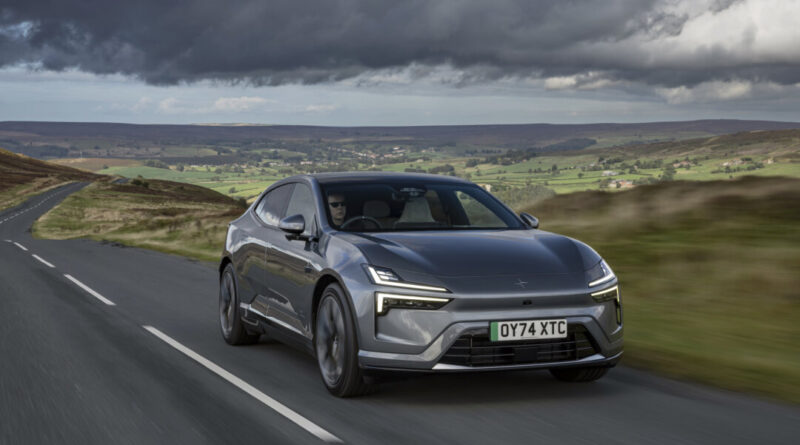Tax Analysts Criticize Levy Supplement on ‘Luxury’ Electric Cars as Inconsistent with Net Zero Strategy
There will be changes to road tax rates for zero-emission vehicles next year, resulting in higher bills for motorists.
A business advisory firm has stated that a tax on “luxury” electric cars, which will be implemented next year, contradicts the government’s net zero ambition.
Furthermore, modifications to Vehicle Excise Duty (VED) set to take effect next year mean that EV owners will now have to pay for road tax for the first time.
Steve Brown, a tax partner at RSM UK consultancy, shared with The Epoch Times via email that the introduction of higher taxes on electric car purchases could have counterproductive outcomes.
“It seems to conflict with the government’s ambitious plans to reduce the nation’s carbon emissions,” he noted.
The government’s Net Zero Strategy aims to decarbonize all sectors of the UK economy and achieve net zero by 2050. Measures introduced under the net zero plans include the phasing out of petrol and diesel vehicles by 2035.
However, concerns in the industry regarding EV costs and the lack of charging infrastructure have resulted in resistance to the policy.
Disproportionate Impact
In the Budget, Chancellor Rachel Reeves mentioned that lower VED rates for electric cars, compared to hybrid and internal combustion engine cars, will encourage EV sales.
The government is also continuing EV incentives in the Company Car Tax system and extending 100 percent First Year Allowances for zero-emission cars and EV charge points for another year, as announced by the Chancellor.
“Zero-emission cars can already be pricey, and some may feel penalized for trying to do the right thing. While the government recognizes this potential issue, it’s unclear why a decision has been deferred,” Brown remarked.
He added, “It could dissuade some from making a purchase until there’s more certainty and could slow down the growth of new electric vehicle sales.”
Commercial Director at Auto Trader, Ian Plummer, appreciated the incentives for EV owners but highlighted the impact of the expensive car supplement.
“The adjustments to Vehicle Excise Duty that promote lower emission vehicles in the recent budget announcement are precisely the type of government action we need to see more of. Hence, it’s unfortunate that the electric car supplement (ECS) hasn’t received similar treatment, especially when we’re advocating for a fair and equitable transition,” he stated.
“With the ECS eligibility threshold frozen and electric car prices on average one-third higher than petrol equivalents, it’s probable that the previous government put this policy in place without monitoring market dynamics and the actual impact it would have on the UK’s electric transition,” Plummer continued.
“As the EV exemption is nearing its end and two-thirds of EVs are affected by the ECS compared to less than half of internal combustion engine cars, EVs will bear the full brunt of this policy,” he detailed in an email statement to The Epoch Times.
He urged the government to raise the threshold for used electric cars to £50,000 to facilitate a “smooth and equitable electric transition.”





